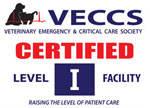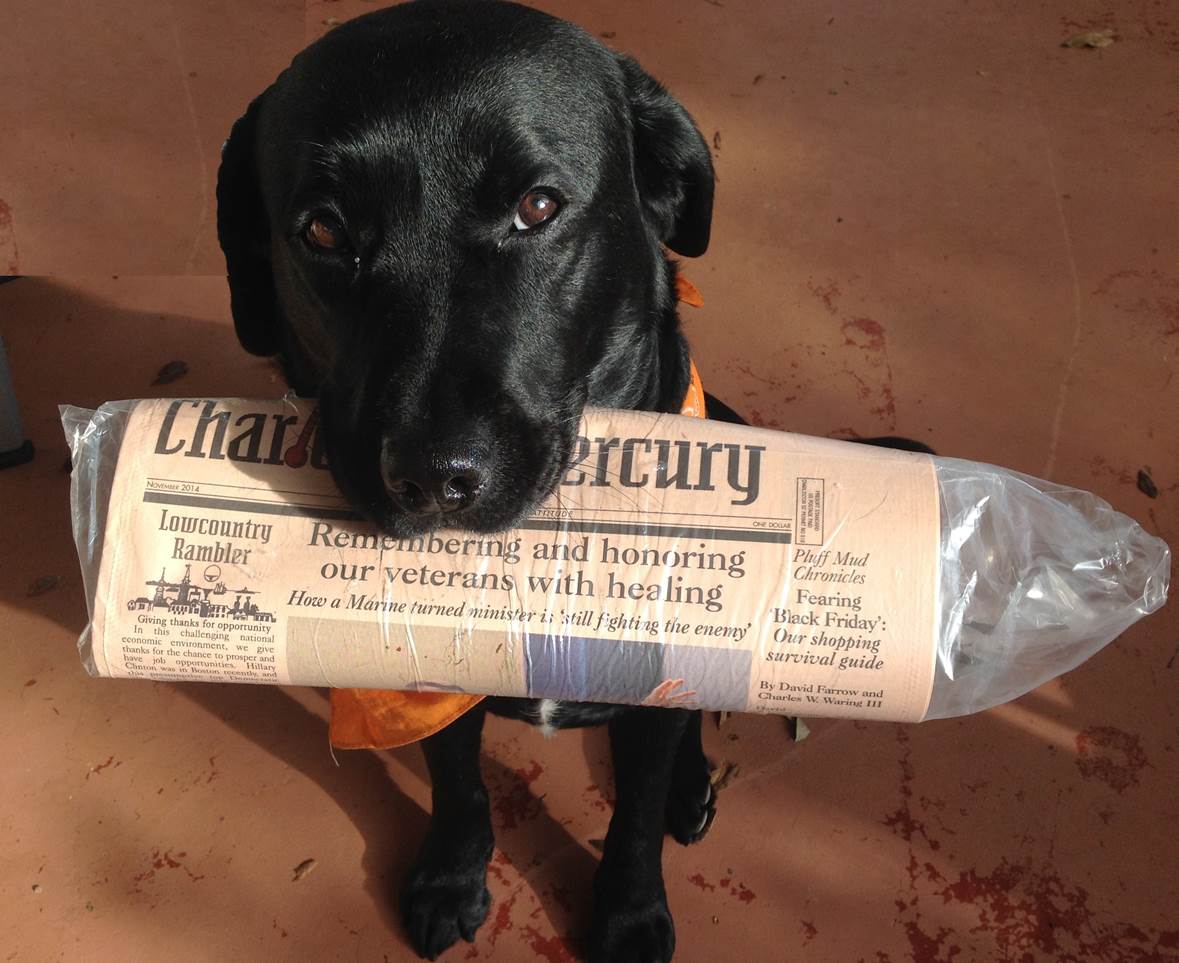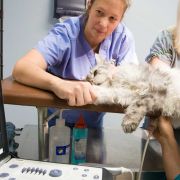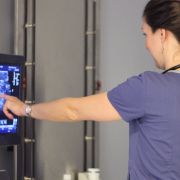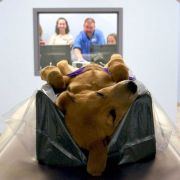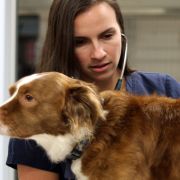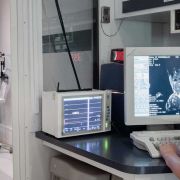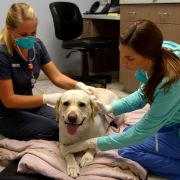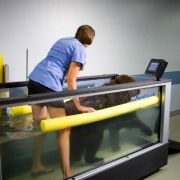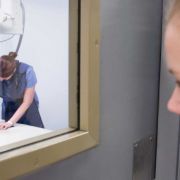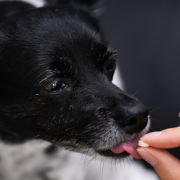Date:
By David Sachs
Holiday time is here again. The years seem to fly by. Depending on your frame of reference and your chosen profession, holidays mean different things to different folks. As veterinarians in a 24-hour emergency and specialty hospital, holidays bring an array of very predictable medical issues and emergencies.
It is my honor to introduce Dr. David Sachs, the co-owner of Charleston Veterinary Referral Center, as this month’s guest contributor. Dr. Sachs has spent years working as an emergency veterinarian and is the medical director of CVRC. He has written an informative article to raise awareness of the many issues surrounding pet ownership and the holidays.
We want to wish everyone a happy and safe holiday season, including pets. While celebrating with family, be aware that the holiday season presents a unique set of health hazards to the furry family members. This short overview of the more common holiday hazards for pets may guide your family in preparation of a pet-friendly celebration.
Deck the halls, but beware: Some decorations are potentially hazardous to the health of our pets. Live Christmas trees, though undeniably beautiful, can cause a nasty case of GI upset to the curious feline who consumes their needles. Some other common iconic holiday plants, including holly and mistletoe, can cause similar illnesses in cats and dogs that ingest them. Lilies are highly toxic to cats and will cause kidney failure if ingested. Take care to keep bouquets that contain lilies out of areas occupied by your feline friends. Electric cords, which are abundant around the tree, pose a threat to dogs and cats that bite or chew them. Please also pay close attention to tinsel, ribbon and Christmas bulbs. These items understandably look like toys to cats and dogs, but can cause serious illness (sometimes requiring surgery) if pets ingest them.
Festive treats for people also pose a threat to our pets. Your dog may beg at the table, but be aware that some of the yummy foods we enjoy during the holidays aren’t suitable for pets. Avoid feeding high-fat “people food” and bones to your cats and dogs. Fatty foods can cause severe GI upset and/or pancreatitis, which may require hospitalization. Bones, on the other hand, have the potential to get stuck in, or cause damage to, your pet’s mouth or digestive tract.
Holiday sweets pose a variety of threats to your pet’s health. Ingredients like grapes, raisins, currants, coffee, chocolate and some nuts are toxic to dogs both before and after they have been baked. Be aware that ingestion of uncooked yeast dough can be toxic to pets as well. In the last few years there has been a rise in the number of sugar-free baked goods and candies which contain xylitol: This artificial sweetener is known to cause low blood sugar and liver failure in dogs. The list of toxic treats is long and it may look a little overwhelming. To simplify things, keep plenty of appropriate dog and cat treats in the house. Share only these goodies with pets. It will be much safer for your furry family — and they probably won’t know the difference.
Lastly, visitors spending time in your home may overwhelm pets, especially cats. Some pets feel a little more secure tucked away in a quiet area (like a bedroom) when the house is full of guests. If you plan to have your pets mingle with the family, keep everyone informed of the dangers that the holidays pose to pets. Visitors traveling with prescription medication may not realize that a variety of medications can cause serious harm if stored within the reach of your curious pets. It’s also important to remember that family members, especially the little ones, may not understand that your pets are not allowed out of the house unsupervised. Take care to secure all exits and to educate your guests on the outdoor and treat policies in your home.
We understand that your pets are a part of your family and will likely be by your side for the holiday celebration. Stay safe and have fun. In the event that your pet gets into a potentially hazardous situation, contact your veterinarian immediately. Many veterinary clinics have abbreviated hours over the holidays. Keep the number of an emergency veterinary clinic handy in case you have questions or concerns while your family veterinarian is out of the office. Having this information before the festivities begin will hopefully help you and yours have a healthy, happy holiday season.



